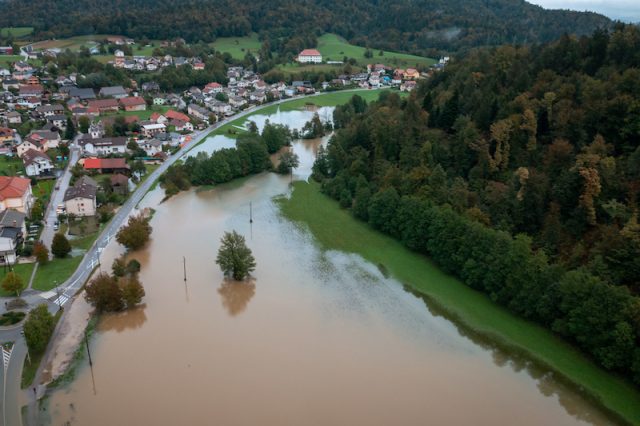Slovenian floods cause landslides in vineyards
By James EvisonLandslides are causing problems in the vineyards of Slovenia, db has learnt, following floods described as the most devastating in the country’s history.

The prime minister Robert Golob said the floods could have produced more than €500m in damage after heavy rainfall battered Slovenia, impacting two-thirds of the country in the first week of August.
Tatjana Puklavec, who produces wines in the heart of Ljutomer-Ormož — a wine area in the North-East Podravje region — told the drinks business that the flooding as “just another natural disaster” that had hit the winemakers of Slovenia this year,
She said that it was expecting a price rise of around 30% compared to 2022 levels as a result of the weather.
Puklavec said: “Besides facing a very wet summer, 80% of all vineyards in the country have been affected by hail, which automatically leads to a smaller production and higher prices.
“Because of the extreme wetness, landslides are causing problems in the vineyards. The non-stop sogginess from March until now will have an influence on the quantity, the quality and the aromatics.”
Partner Content
Puklavec also said that it expected its harvest to start on around 10 September but the current conditions were making it difficult to ensure a date.
“Right now, even the early ripening varietals like Sauvignon Blanc are still unripe and we need sun,” she continued, “we are hoping for stable, dry, warm weather until the end of the harvest, which could lead to a nice quality of our late ripening varietals like Furmint, Rhine Riesling and Welsch Riesling.
“We will keep on investing in our sparkling wine production, to manoeuvre around the climate changes, so we can pick earlier with a higher yield.”
News agencies at the time of the floods a fortnight ago highlighted that several major roads throughout the country had become blocked or closed, and dozens of bridges had also collapsed and were now being assessed by local authorities. About a month’s worth of rainfall fell during in less than a day, causing “incredible damage”, according to the country’s environment agency.
According to local sources, some towns and villages are still partially-flooded with widespread homelessness, and disruption to livelihoods across agriculture in the shorter and longer-term.
On 9 August, European Commission President Ursula von der Leyen announced a financial aid from the EU Solidarity Fund. A sum of €400m has been designated to support flood relief, which will be provided in two instalments, an initial €100m in 2023 followed by another €300m in 2024. In addition, the Slovenian government is also revising its budget to allocate €100m for financial aid and relief initiatives.
Related news
The winemaking nations hit hardest by Trump tariffs
Hospices de Nuits-Saint-Georges auction: bucking the trend
‘Liberation Day’ or liquor lockdown? Trump’s tariffs rattle the wine & spirits world




